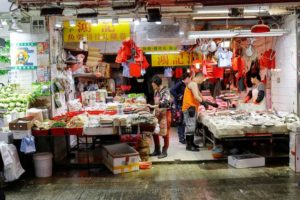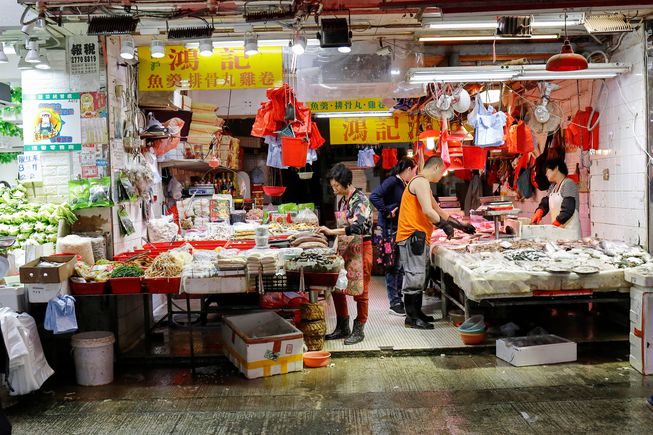
Fresh food markets — where people can buy fruits and vegetables and sometimes seafood and meat — are popular in many places around the world. But “wet markets” are unique to Asian countries. In some of these places, fish, poultry, snakes and other animals are slaughtered on site. Sometimes there are more exotic wild animals — like hedgehogs and rabbits — for sale, too.
They’re called wet markets because they always have wet floors from the continually melting blocks of ice used to keep seafood fresh. Stall keepers also clean their areas by continually spraying them down with water, according to the Singapore National Heritage Society.
Authorities say the new coronavirus that has sickened more than 6,000 people has been linked to a wet market in Wuhan, China. Local media outlets have reported that the market also sold snakes, marmots, monkeys and other animals. This sparked concerns that the virus was transmitted from animals to humans.
I – Word Understanding
Slaughter – to kill an animal for food
Exotic – unusual and exciting, coming from a specific (far away) place/country
II – Have Your Say
1. Is wet market common in your area? If not, have you ever visited one? Share your experience.
2. Despite its name “wet market”, it is actually divided into two parts, the wet section and dry section. Prices are lower than the supermarket or shopping malls. Where can you find cheaper price products in your area?
3. As mentioned, exotic and wild animals are often sold in wet markets. What exotic animals and products do you have in your area/country? Where are these usually sold?
4. Wet markets sell fresh produce, live animals and provide a cultural connecting point — but they have also been linked to outbreaks. Would you agree to ban selling such exotic products and implementing strict controls to avoid another outbreak?
5. In this day and age of technology, internet shopping has widely invaded our daily lives. Do you think this will end the era of wet markets?


